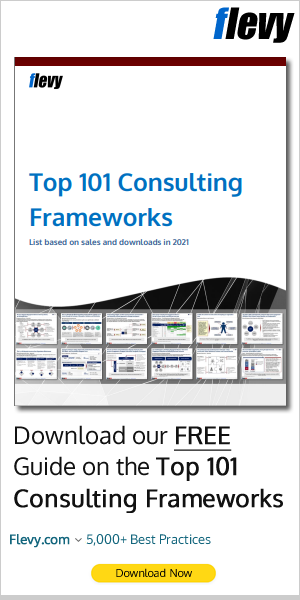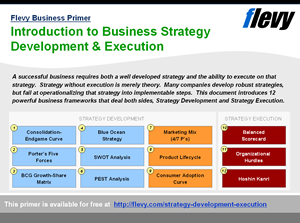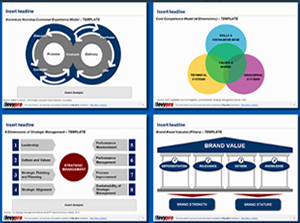Editor's Note: Take a look at our featured best practice, Team Management Models (128-slide PowerPoint presentation). This presentation is a collection of PowerPoint diagrams and templates used to convey 26 different Team Management models and frameworks. INCLUDED MODELS/FRAMEWORKS: 1. Mintzberg's Management Roles Model 2. Butler & Waldroop's Four Dimensions of Relational Work Model 3. [read more]
How Managers Can Start Delegating Tasks: 6 Main Steps
* * * *

This article describes the primary steps of how managers can delegate responsibilities from start to finish.
1. Understand the Benefits of Delegating Tasks
There are many benefits to delegating tasks, which include increased productivity. According to “MIT Sloan Management Review” by Jörg Weibull of Lund University, delegation improves employee performance and helps the company achieve its goals. For example, if your company makes software that shows how to enter cell number read texts free without installing on target phone, you can boost overall revenue, if your sales team lead can dedicate more time to make up new sale strategies.
For example, an employee who is confident in their abilities can perform better than one who is not. Not only does the delegating manager gain the skills of a capable team player, but they will also drive employees to achieve their maximum potential.
2. Assess Your Strengths and Weaknesses
One of the essential steps in delegation involves self-assessment. Managers have to judge whether or not they have the time required for completing a delegated task well. They need to ask themselves several questions before delegation: Is this job something I should handle personally? Do I have someone else on my team I trust enough to complete this task? Will this win me some time to gain more money or a new understanding?
Knowing self best work abilities can provide insights on what tasks should be done by managers and which should be delegated primarily.
3. Develop a System for Delegation
The important question is how will the manager follow up to ensure the job is completed well and on time? This question is fundamental in case there are going to be consequences or rewards attached to completing a particular project. A manager must find out how he will have his subordinates keep him updated about their progress, what they think went best and worst during will the project, etc., to get more insight into their employee’s work progress.
So, managers should construct a clear and fully structured system, which answers every possible question employees might have on their future tasks. For better usage, that set of rules should be posted online, on corporate servers, or even in google docs.
4. Choose the Right Person for the Job
First and foremost, a manager must decide which employee is the right one to handle specific tasks. It’s essential that employees’ skills and personalities match what is needed to succeed with their delegated assignments.
If necessary research is required to determine if the employee is suitable for the job, the HR department can also be involved in an additional interview. And there is a good chance that employees might surprise you.
5. Train Employees Effectively
Before delegating any task, it’s essential to train employees properly. Hence, they know what is expected of them when they take over a particular project or part of a larger goal. There is a chance that additional courses for workers are required to fulfill new responsibilities in the best way. So employees should provide possibilities for that.
6. Follow Up on Delegated Tasks
It’s essential to follow up on delegated duties to update their progress. You should always ask what you can do to help them meet the time frame they’ve set for themselves. This will allow employees to complete their projects with minimal setbacks.
They are good at concentrating on a specific part of larger goals, but sometimes find it hard to see how details fit into the whole picture.
When workers are given responsibility for certain goal sets, they need appropriate space to grow in a new professional environment and show results. Employers should know all possibilities to protect success factors like company reputations or long-term business relationships.
Conclusion
In the end, the company`s results depend on how managers can delegate tasks successfully by understanding benefits associated with delegation, assessing strengths/weaknesses, developing a system for delegation, choosing the right person for the job, training effectively, and following up on delegated tasks.

Do You Want to Implement Business Best Practices?
You can download in-depth presentations on Team Management and 100s of management topics from the FlevyPro Library. FlevyPro is trusted and utilized by 1000s of management consultants and corporate executives.
For even more best practices available on Flevy, have a look at our top 100 lists:
- Top 100 in Strategy & Transformation
- Top 100 in Digital Transformation
- Top 100 in Operational Excellence
- Top 100 in Organization & Change
- Top 100 Management Consulting Frameworks
These best practices are of the same as those leveraged by top-tier management consulting firms, like McKinsey, BCG, Bain, and Accenture. Improve the growth and efficiency of your organization by utilizing these best practice frameworks, templates, and tools. Most were developed by seasoned executives and consultants with over 20+ years of experience.
Readers of This Article Are Interested in These Resources

|
|
25-slide PowerPoint presentation
|
|
111-slide PowerPoint presentation
| |||
About Shane Avron
Shane Avron is a freelance writer, specializing in business, general management, enterprise software, and digital technologies. In addition to Flevy, Shane's articles have appeared in Huffington Post, Forbes Magazine, among other business journals.
Top 10 Recommended Documents on Team Management
» View more resources Team Management here.
» View the Top 100 Best Practices on Flevy.













